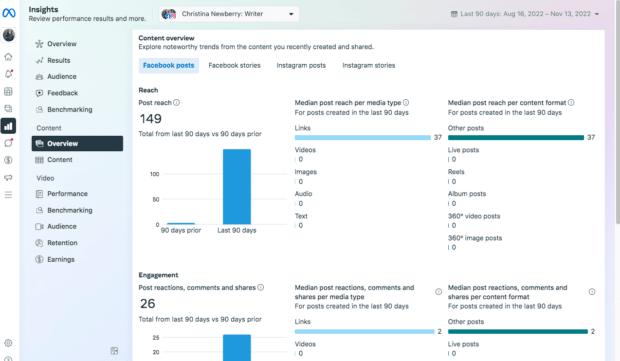Mastering Facebook Monitoring: Strategies to Grow Your Brand and Engage Your Audience
In the dynamic landscape of social media, Facebook monitoring has emerged as a crucial strategy for brands aiming to thrive and grow. Leveraging various tools and techniques, Facebook monitoring allows businesses to track and analyze brand mentions, industry trends, and competitor activities on the platform. This practice not only provides valuable insights into audience perceptions but also helps in optimizing content strategies, enhancing customer engagement, and staying ahead of the competition. In this comprehensive guide, we will explore the significance of Facebook monitoring, its key benefits, essential metrics to track, and practical steps to enhance your monitoring strategy.

What is Facebook Monitoring and How Can It Help Your Brand Grow?
Facebook monitoring involves using a variety of tools and techniques to track and analyze mentions of your brand, industry, or competitors on the platform. This includes monitoring posts, pages, and groups to identify trending topics, discover viral content, and pinpoint influential users. By doing so, you can gauge sentiment towards your brand, uncover marketing opportunities, and spot potential threats to your brand’s reputation.
Regular Facebook monitoring allows marketers to gather valuable insights into how their brand is perceived by the public. This data can help in tailoring content to better meet the audience's needs and preferences, ultimately enhancing engagement and fostering a stronger connection with your community.
Key Benefits of Facebook Monitoring
Identifying Trends: By tracking discussions and topics within your industry, you can stay ahead of trends and ensure your content remains relevant and engaging. Understanding what is trending allows you to align your content strategy with the interests of your audience.
Understanding Audience Sentiment: Monitoring tools provide insights into how your audience feels about your brand, products, or services. This understanding allows you to address negative perceptions promptly and reinforce positive ones, thereby managing your brand’s reputation effectively.
Enhancing Customer Engagement: Real-time monitoring enables you to respond to comments and messages quickly, improving customer satisfaction and building loyalty. Engaging promptly with your audience shows that you value their input and are committed to addressing their needs.
Benchmarking Against Competitors: Analyzing your competitors' performance on Facebook helps you identify gaps and opportunities to differentiate your brand. Understanding their strategies and audience engagement can inform your tactics and keep you competitive in the market.
Crisis Management: Early detection of negative sentiment allows you to address potential crises before they escalate. Proactive management of issues can prevent damage to your brand’s reputation and maintain customer trust.
5 Reasons to Monitor Facebook Rigorously
Know Your Audience: Regularly monitoring your Facebook presence helps you track and measure the performance of your content. Metrics such as reach, engagement, and audience demographics provide insights into what types of content resonate most with your audience. This enables you to adjust your strategy accordingly to maximize impact.
Engage with Potential Consumers: Facebook monitoring allows you to track and respond to feedback and comments from your audience in real-time. This not only improves customer satisfaction but also builds trust and loyalty. Engaging promptly with your audience demonstrates that you value their input and are committed to addressing their needs.
Grow Faster Than Your Competitors: By monitoring your competitors' activities on Facebook, you can gain valuable insights into their strategies and audience engagement. This information can help you refine your own tactics to better meet the needs of your audience, keeping you a step ahead in the market.
Stay on Top of New Trends: Monitoring Facebook helps you identify which types of posts are performing well and which are not. By understanding what content your audience is most interested in, you can create timely and relevant posts that resonate with them. Additionally, tracking industry trends and news allows you to produce content that aligns with current interests.
Expand Your Brand Influence: Influencers play a significant role in enhancing brand visibility and credibility. By identifying and collaborating with influential users, you can reach larger audiences more effectively. Monitoring the impact of these influencers helps you understand their value and optimize your influencer marketing strategies.

Essential Facebook Metrics to Track and Analyze
Understanding and analyzing Facebook metrics is crucial for evaluating the success of your social media campaigns. Facebook offers a range of metrics that provide valuable insights into your brand’s reach, engagement, and audience demographics. Here are the key metrics you should be focusing on to optimize your Facebook strategy:
Post Reach and Impressions
Post Reach: Indicates how many users have seen your post. Monitoring post reach helps you understand the extent of your content’s visibility and engagement levels.
Impressions: Tracks the number of times your content is displayed, regardless of whether it is clicked. This metric helps in assessing the overall visibility of your brand on Facebook.
Engagement Metrics
Post Likes and Reactions: These metrics measure the virality and popularity of your posts. The number of likes and reactions indicates how well your content resonates with your audience.
Comments and Reply Count: Reflects the level of interaction and engagement your posts are generating. High comment and reply counts suggest that your content is sparking conversations and engaging your audience effectively.
Mentions: This metric helps you track what people are saying about your brand and identify trending topics of interest.
Audience Insights
Page Views: Tracks the number of views your Facebook Page receives. This metric is crucial for understanding your page’s visibility and the interest level of your audience.
Location: Provides information on where your audience is located. This geographic data helps in tailoring your content to specific regions and understanding regional engagement trends.
Demographics: Breaks down your audience by age, gender, and other demographic factors. This information is essential for creating targeted content that resonates with different segments of your audience.
Content Performance
Post Types: Analyzes the types of content that best engage your audience. Understanding which formats (e.g., videos, images, links) perform well can help in refining your content strategy.
Facebook Group Analysis: By monitoring conversations within Facebook Groups, you can gain insights into community discussions and identify key topics that matter to your audience.
Sentiment Analysis
This metric evaluates the sentiment of your audience towards your brand. It helps in understanding how your brand is perceived and identifying areas that may require reputation management or positive reinforcement.
Enhancing Your Facebook Monitoring Strategy
To maximize the benefits of Facebook monitoring, it is essential to implement a structured approach. Here are some practical steps to enhance your monitoring strategy:
Set Clear Objectives: Define what you aim to achieve with Facebook monitoring. Whether it’s improving customer engagement, increasing brand awareness, or managing reputation, having clear objectives will guide your monitoring efforts.
Choose the Right Tools: Select monitoring tools that align with your objectives and provide comprehensive analytics. Look for features such as real-time tracking, sentiment analysis, competitor benchmarking, and customizable reports.
Regularly Review Metrics: Consistently review the metrics that matter most to your brand. Regular analysis helps in identifying trends, understanding audience behavior, and making informed decisions to optimize your strategy.
Engage Proactively: Use the insights gained from monitoring to engage proactively with your audience. Respond to comments, address concerns, and participate in relevant discussions to build a positive brand image and foster community.
Stay Informed About Industry Trends: Keep an eye on industry trends and news. This will help you create content that is timely and relevant, ensuring that your brand remains at the forefront of conversations within your niche.
Conclusion
Facebook monitoring is an indispensable tool for businesses looking to thrive on the platform. By tracking and analyzing key metrics, understanding audience sentiment, and staying ahead of trends, brands can enhance their social media presence and build stronger connections with their audience. Implementing a robust monitoring strategy not only helps in managing reputation and engaging customers but also provides valuable insights to drive growth and stay competitive in the ever-evolving digital landscape. Start monitoring your Facebook presence today and unlock the potential for greater brand success and community engagement.